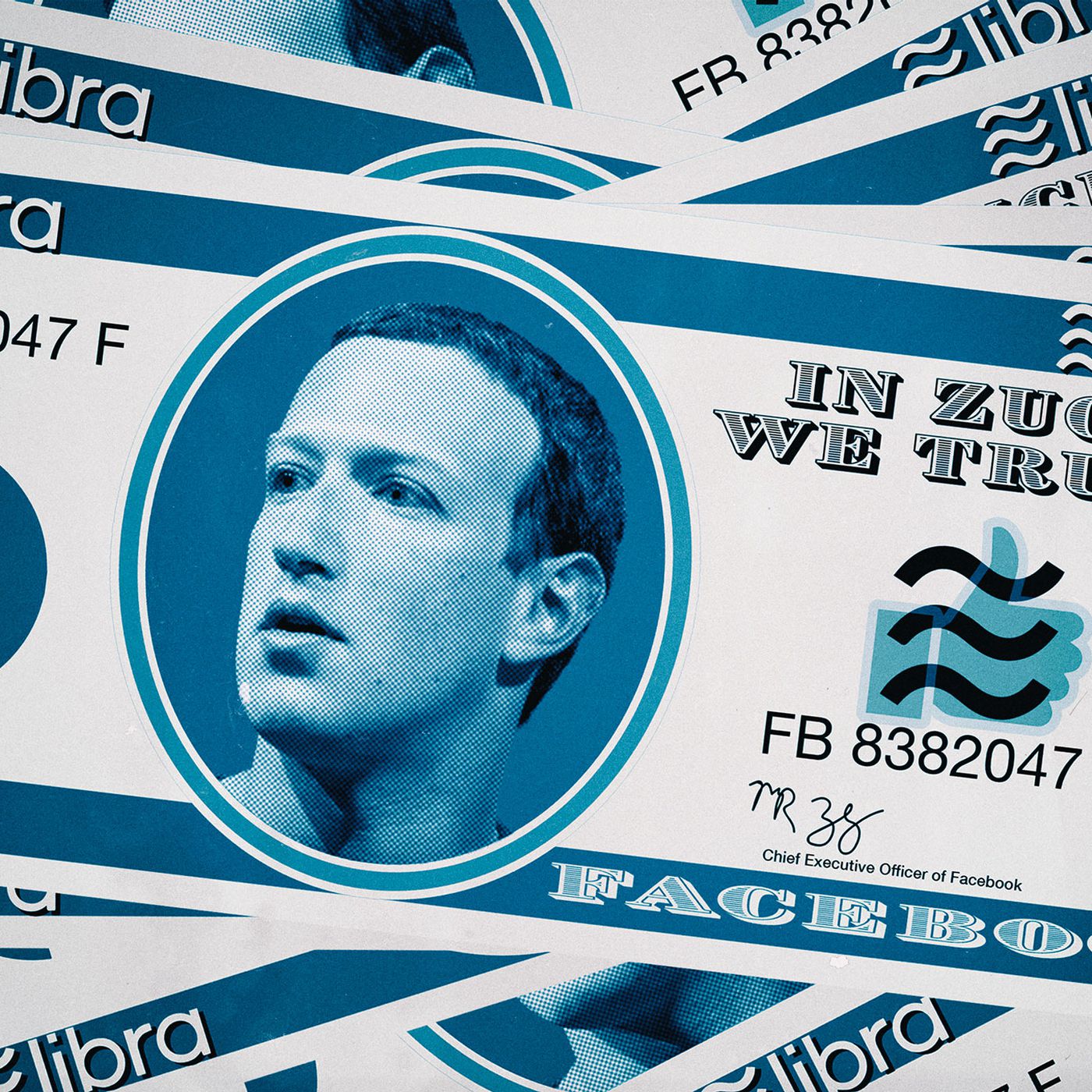Uncertainty looms for Facebook’s Libra amid announcement of new CEO

A few minutes every morning is all you need.
Stay up to date on the world's Headlines and Human Stories. It's fun, it's factual, it's fluff-free.
In June 2019, Facebook announced that it was developing a new global payments system called Libra that would integrate blockchain technology to its platforms in order to allow free and simple financial transactions across the globe.
Blockchain enables information about transactions to be stored and verified without the use of a third-party, like traditional banks. It is the same underlying technology that runs other cryptocurrencies, like Bitcoin.
Initially, the project had a host of big-name corporate partners, like Visa and PayPal. But the project met with immediate pushback from lawmakers and regulatory analysts, with some worrying that it could be an overly disruptive technology that might impact the stability of international finance.
Critics have argued that this could lead to the increase of money laundering and that problems may occur if Libra started to compete with government currencies, potentially affecting markets.
Finance ministers in both France and Germany came out against the project, and United States President Donald Trump insisted that Facebook “become subject to all banking regulations” if they want to become a bank.
For its part, the Libra team insisted that it wasn’t trying to become a bank or print money, but simply use technology to enable people to send money hassle-free anywhere in the world.
By October of last year, however, Visa, PayPal and a handful of other partners had left the project.
New direction

In April 2020, in a bid to soothe regulator’s fears, Facebook announced that it had reconfigured the way Libra would be set up. Originally, the plan was to have Libra “coins” – the medium of exchange within the platform – backed by a variety of different global currencies and government debt in the hope of making the price stable within and across borders.
After giving consideration to critics who said that this could destabilize national systems, Libra revealed that its coins would now be tied to specific local currencies.
According to their newly-released white paper, Libra says that transactions within borders will be pegged to the currency operating within that border, while cross border payments will stay tied to multiple currencies.
Likewise, instead of being an open system, like Bitcoin, which has no central authority governing it, Libra says that only approved partners will be able to build upon its infrastructure. This, they believe, will lessen the chance of bad actors infiltrating or otherwise tampering with its systems.
On May 6, Libra announced that it had hired Stuart Levey as its new CEO.
Levey had previously worked in the US Treasury Department where he served as the first Under Secretary for Terrorism and Financial Intelligence. He’s currently the Chief Legal Officer for HBSC, a British investment firm.
A Libra spokesperson told The Millennial Source that Levey would not be joining the company until later this summer.
Looking forward
Originally set to go live in June of this year, setbacks and changes in Libra’s infrastructure pushed its unveiling back until at least November.
In the meantime, in addition to continuing to engage in dialogue with policymakers and gather feedback on its testnet, Libra is currently in the process of gaining regulatory approval for a payment systems license from Switzerland’s Financial Market Supervisory Authority (FINMA).
Gaining this approval would, in principal, only be applicable for licensing under Swiss law, but a successful result could nonetheless help pave the way for further regulatory gains.
However, there is still a considerable amount of uncertainty over the project, especially concerning its timeline.
Some lawmakers remain skeptical that Libra has done enough to pass regulatory hurdles, despite the changes in its systems.
“From the moment Facebook and the Libra Association released its first whitepaper on its new Libra currency, I have made it clear that I have major concerns about the project and its proposed rollout,” argued Sylvia Garcia, a Congresswoman from Texas.
“Now Facebook and the Libra Association have issued a second white paper that retains a Libra coin backed by a basket of assets. As such, this does not address the concerns I raised when Mr. Zuckerberg testified before the Financial Services Committee, and for which I introduced legislation to address said concerns,” she continued.
In an interview late last year, Mark Zuckerberg, Facebook’s Chief Executive, said that Libra will continue to be sensitive to stakeholder’s concerns as it pushes for its release.
“A lot of people have had questions and concerns, and we’re committed to making sure that we work through all of those before moving forward," Zuckerberg said, adding, “Obviously we want to move forward at some point soon [and] not have this take many years to roll out, but right now I’m really focused on making sure that we do this well.”
Levey is adamant that firm direction is needed to ensure Libra meets regulatory standards.
“One of the things I intend to do when I start at the Libra Association is to review in detail the current plans that are in place … for financial crime compliance, and frankly, all of the other critical controls,” Levey told The Financial Times following his appointment.
Have a tip or story? Get in touch with our reporters here!
Sign up for daily news briefs from The Millennial Source here!




Comments ()